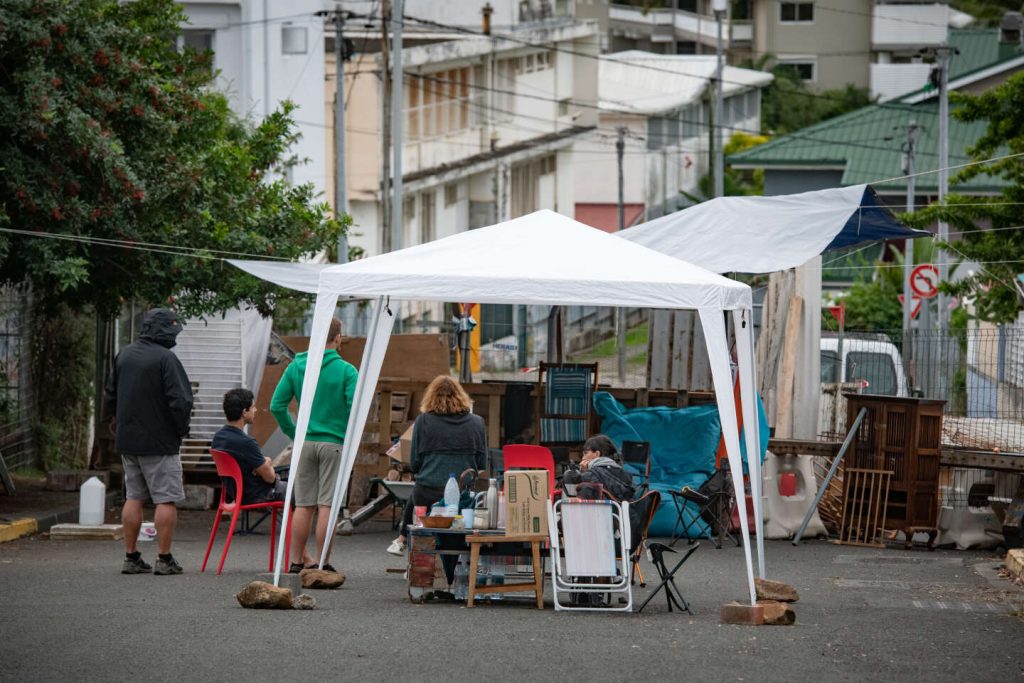Residents of the Vallée-des-Colons neighborhood in Nouméa erected a barricade on May 28, 2024, in response to the outbreak of an insurrection in the city. They have been maintaining a small barricade since May 15, with neighbors taking turns night and day. The area, home to a mix of small properties and social housing, is close to the Do-Kamo vocational high school, which educates many young Kanak students, as well as the Géant supermarket, which was spared from the unrest. Concerned by the presence of masked individuals with Kanaky flags passing by, the residents decided to blockade the area out of fear for their safety.
The situation in Nouméa has caused fear and anxiety among the residents, with some comparing it to the situation in South Africa due to what they perceive as strong anti-White racism. One retiree expressed concern that the current unrest in New Caledonia could escalate into a larger conflict, depending on the actions taken by President Macron. There are fears of a possible war, not only in Nouméa but also in other locations such as Tahiti, Paris, Marseille, or elsewhere, although this scenario seems far removed from the reality in mainland France.
Some residents, like Alain, who used to work for the Société Le Nickel, a crucial player in the economy of New Caledonia, fear the collapse of the company. If the nickel smelters were to shut down, thousands of people would lose their jobs, potentially leading to further unrest. The impact of the current situation is already being felt, with thousands of workers losing their jobs in a territory of 270,000 inhabitants. The fear of economic instability and social unrest is palpable among the residents, who worry about the future of their livelihoods and their community.
The violent events that unfolded on the night of May 13 prompted loyalist figure Harold Martin to call for the formation of barricades and blockades for protection. There was also a spontaneous movement among residents who were afraid after seeing attacks on commercial areas and vital infrastructure. The disruption in Nouméa is already having significant repercussions, with businesses and essential services being targeted. The actions of both the loyalist and independence movements are escalating tensions and threatening the stability of the region.
The residents of Vallée-des-Colons are not alone in their concerns, as the entire region is on edge. The risks of further violence and unrest are high, especially with the potential for economic collapse looming. The conflicting interests of various groups, from loyalists to independence activists, are exacerbating the situation and creating a volatile environment. With the threat of job losses, economic instability, and social discord, the future of New Caledonia hangs in the balance, with the possibility of further escalation and conflict on the horizon. The challenges facing the residents of Vallée-des-Colons are part of a larger struggle for peace and stability in the region, as they navigate the complexities of identity, politics, and economics in a rapidly changing landscape.















